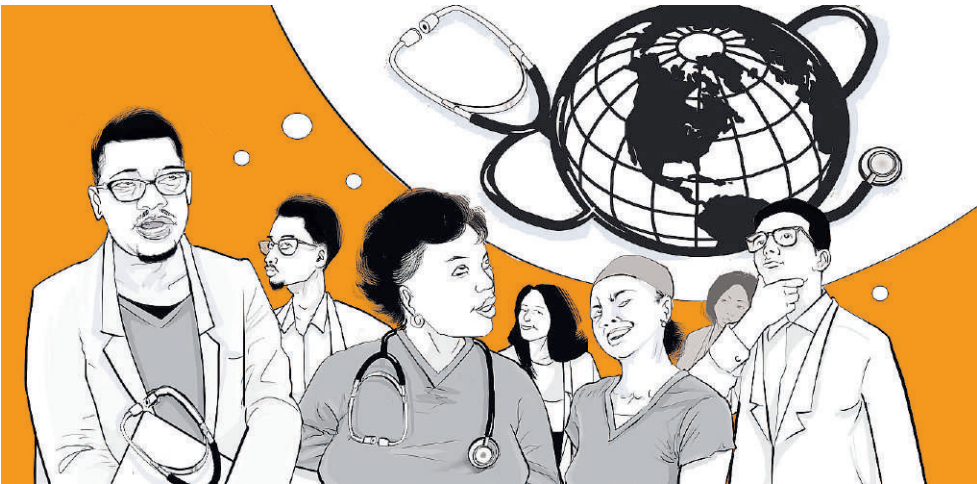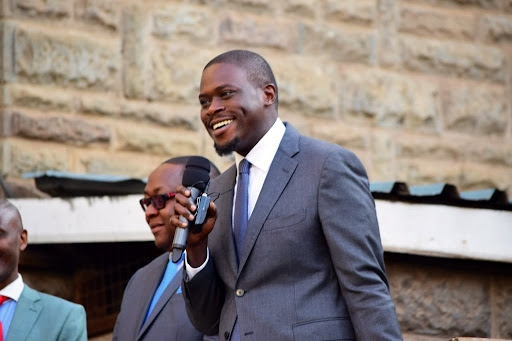

“The idea that one should only be given an ear if they have Harvard MBAs or CVs as long as the Dead Sea Scrolls is one of the reasons innovations and accelerated change for the better never take place in any environment.” — John Kagaruki.
In global health and development, who gets to define what counts as a good idea? Whose solutions are taken seriously, and whose are quietly ignored?
Too often, it is not the people closest to the problem. Not the patients rationing HIV medication. Not the health workers in overcrowded public hospitals. Not the small-town entrepreneurs building apps to reach remote communities.
Instead, we defer to “accepted” sources—donor governments, multilateral institutions, elite universities and large NGOs— while sidelining local experts, practitioners and communities who live and breathe the problem every day. This is more than a gap in recognition; it’s a failure of imagination.
Consider Tanzania’s Bus Rapid Transit system. My friend John Kagaruki, a Tanzanian business leader, raised the alarm early on about its inefficient procurement processes and unsustainable ownership model.
He proposed a solution: let private bus owners invest through an IPO, bringing in local capital and buy-in. Yet his ideas were dismissed, not because they lacked logic, but because they didn’t come from the usual international consultants or agencies.
The system stalled. The problems remained. Public transport influences both local health and global development. It improves access to care, reduces pollution, connects people to jobs and healthy food, and combats social isolation.
That’s public health—yet decisions about it are still left to well-paid consultants. We see this pattern repeatedly. When innovations emerge from outside traditional institutions, they are often treated as novelties or fringe experiments—until, of course, they succeed.
The examples in place did not begin in Geneva or Boston. They came from people working in the trenches, facing impossible constraints, and refusing to accept them.
The same systemic bias appears in global aid decisions. In Kenya, recent USAID funding freezes have left over $34 million in HIV medication stranded in warehouses (Reuters). 1.4 million people are now at risk.
And yet, when global media or donor panels discuss solutions, how often do we hear from the patients affected? From community health workers suddenly left without stock? One Kenyan patient recently told Reuters: “We are now living in fear because we don’t know when the drugs will be available again.”
If global health institutions are serious about equity, they must look beyond their own echo chambers. Three structural barriers keep this problem in place: policy influence is limited to those with access to leadership; private sector investment often excludes social innovations without clear returns; and shifting public perception requires visibility that most frontline actors do not have.
But the solutions are there. In Rwanda, Health Tech Hub Africa supports local AI-powered health startups. In Kenya, WhatsApp-based telemedicine is closing the gap in primary care.
The Global Surgery Advocacy Fellowship, which I am part of, champions African-led solutions to surgical system challenges, from cancer referral protocols to cost-effective operating room models. Our work proves that those closest to broken systems are often best placed to fix them.
Grassroots efforts are gaining ground. The WHO’s NCD Lab now supports community-based responses to diabetes, cancer and hypertension (WHO).
These are signs of progress—but still, too often, community-driven models are “mainstreamed” only after validation by elite institutions. So what needs to change? Development leaders must expand their definition of expertise.
Policymakers must create space for co-creation, not just consultation. Donors must fund bold local ideas before they have passed through 10 layers of approval. We need fewer global panels without local voices, and more local panels with global reach.
The future of global health is already being built—in district hospitals, in informal settlements, in WhatsApp groups and in rural cooperatives.
The question is whether we will notice it in time. Because the problem is not that we lack innovation. The problem is that we still think it needs a PhD and a podium to be real.
Okumu is a surgeon, writer and advocate
of healthcare reform and leadership in Africa














